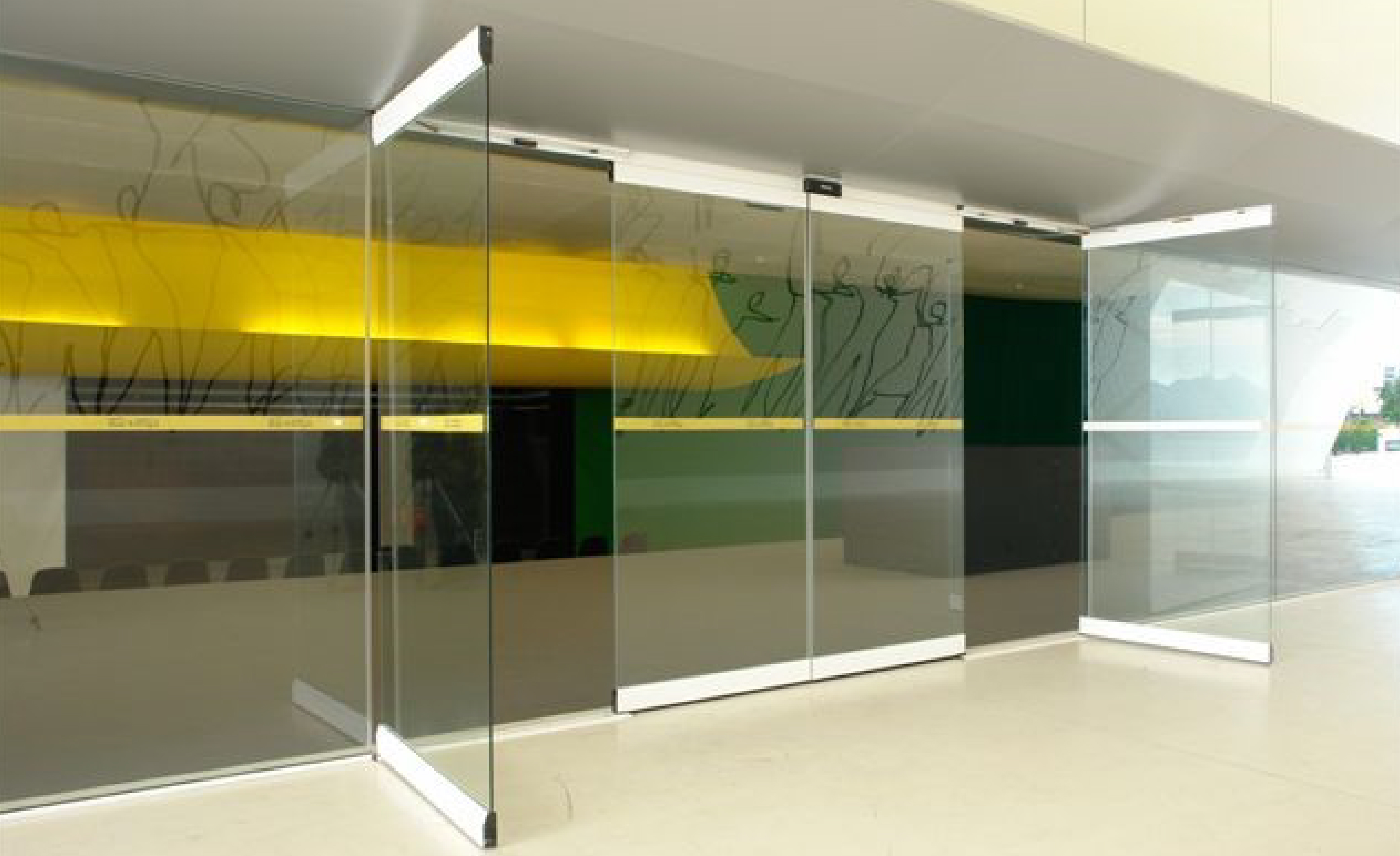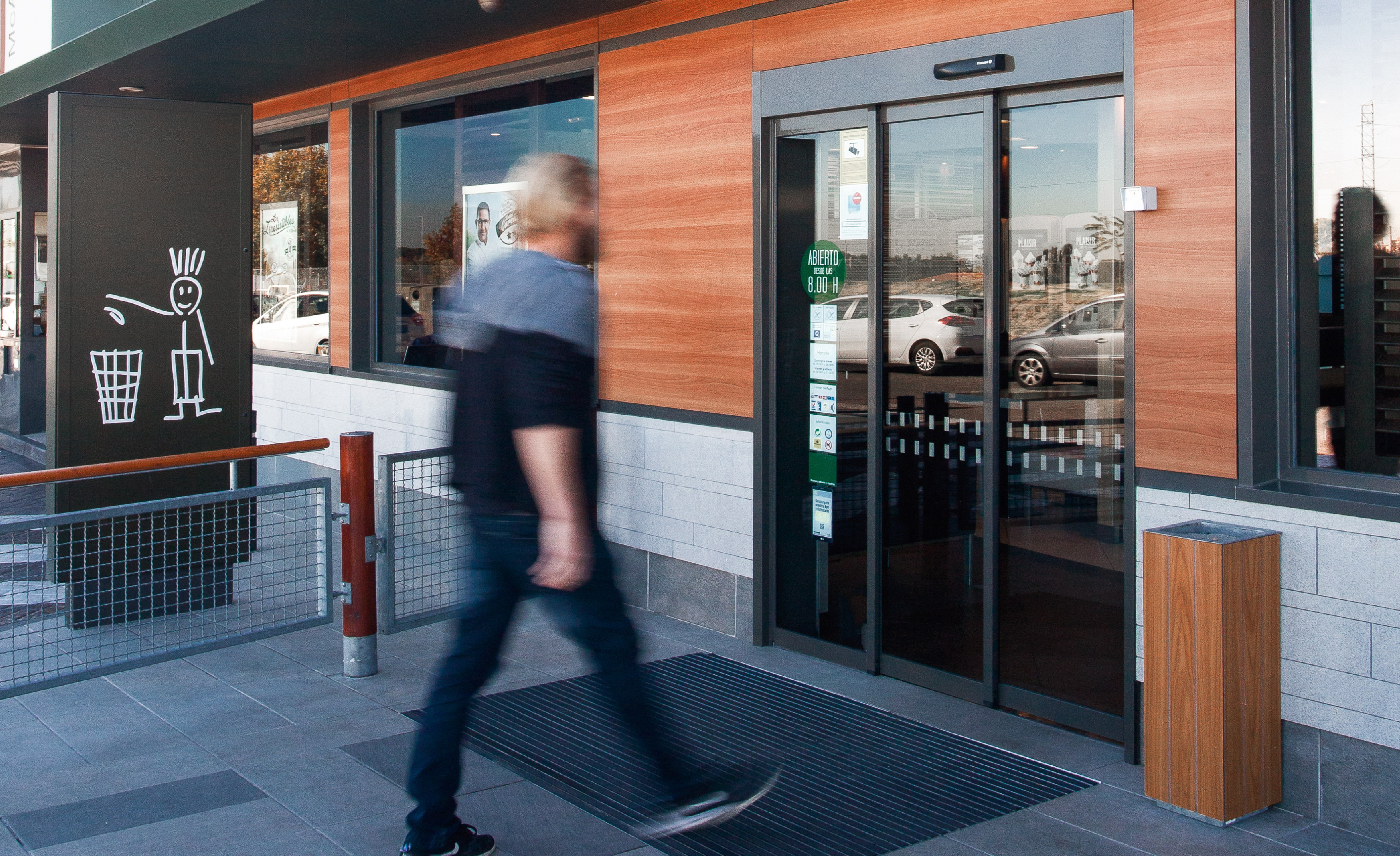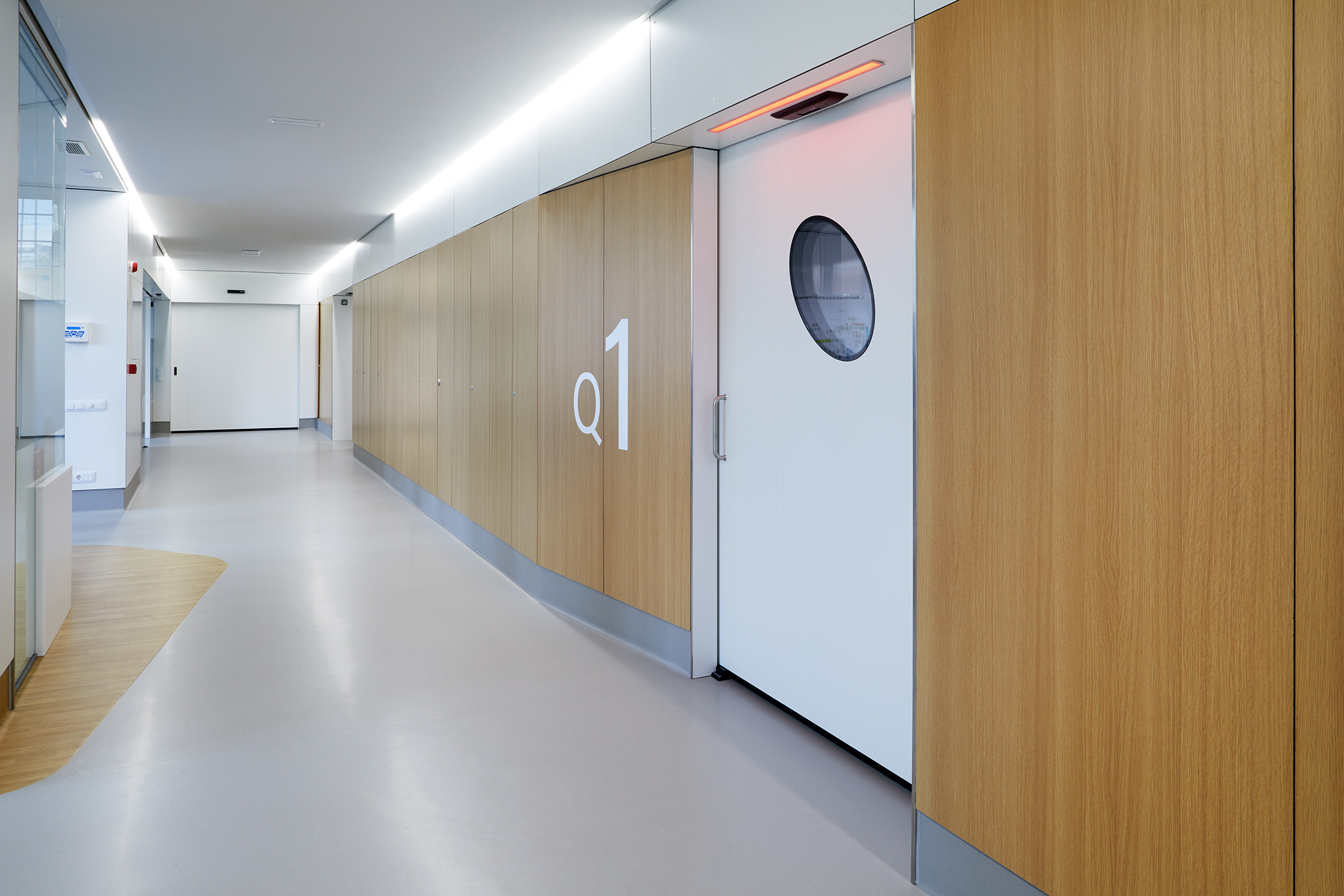Montevideo, Uruguay
British Hospital
One of the most important sectors for any society is the health sector. The health and wellbeing of the people in any city or country depend on it. Many of the hospitals and medical centres were built decades ago to serve the population and, while retaining much of their framework and foundations, innovations such as state-of-the-art medical equipment and architectural structures have been added to improve both the professional work of the healthcare staff and the patients' stay.
Automatic doors are a reality in many healthcare facilities. As a main entrance, we can use either a standard automatic door or a telescopic door, the latter is usually installed if the opening is small, but maximum width is required. Revolving doors can also be found at main entrances, as they are the best solution when there is a constant and high flow of people, as well as for maintaining the building's climate control. Indoors, it is also common to see hermetic automatic doors in intensive care units, operating theatres and restricted areas.
One of Manusa's most emblematic projects was developed at the British Hospital of Uruguay, located in Montevideo, the capital of this South American country. This health centre is a non-profit institution that operates as a private hospital. It was first established in 1857 by British citizens in Ciudad Vieja, the old town of Montevideo, under the name of "Hospital Extranjero" ("Foreign Hospital"). Years later, in 1913, it moved to its current location and in the same year changed its name to the current one.
During one of its extensions, Manusa installed hermetic automatic doors in the operating theatres, both with central and lateral openings. All of them are fitted with a peephole with a built-in viewing chamber with an elegant design and easy to clean. This allows nursing staff and doctors to observe from both sides without having to open the door. In addition, there is a security system for people passing through each of the doors.
Thanks to these intelligent accesses, airtightness is ensured as well as an adequate management of the air flow in the rooms, minimising the risks of surgical hospital-acquired infections. Preventing the spread of viruses and bacteria in rooms as sensitive as operating theatres is one of the main objectives of the hospital solutions offered by Manusa.



